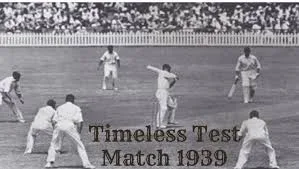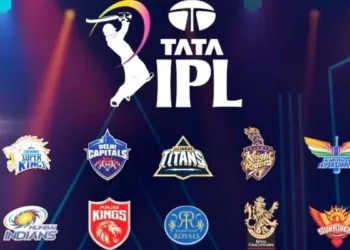The football world has been rocked by an unprecedented decision as Maccabi Tel Aviv announced they will decline any ticket allocation offered for their upcoming Europa League fixture against Aston Villa at Villa Park. This dramatic development comes after Birmingham’s Safety Advisory Group (SAG) banned the Israeli club’s supporters from attending the November 6 match, citing serious security concerns stemming from previous incidents involving the club’s fanbase.
Table of Contents
The Decision That Sparked Political Uproar
The controversy began when West Midlands Police classified the Europa League tie as “high risk” following a comprehensive assessment. The decision was based on current intelligence and previous incidents, including violent clashes and hate crime offences that occurred during the 2024 UEFA Europa League match between Ajax and Maccabi Tel Aviv in Amsterdam.

The ban immediately drew fierce criticism from across the political spectrum, with Prime Minister Sir Keir Starmer calling it the “wrong decision” and emphasizing that “the role of the police is to ensure all football fans can enjoy the game, without fear of violence or intimidation.”
| Timeline of Events | Date | Key Development |
|---|---|---|
| November 2024 | Amsterdam Incidents | Violent clashes during Ajax vs Maccabi match |
| October 17, 2025 | Initial Ban | SAG blocks Maccabi fans from Villa Park |
| October 18, 2025 | Political Response | PM Starmer criticizes decision |
| October 21, 2025 | Club Response | Maccabi decline ticket allocation |
| November 6, 2025 | Match Date | Europa League fixture at Villa Park |
Maccabi Tel Aviv’s Defiant Response
Despite government efforts to reverse the decision, Maccabi Tel Aviv took the unprecedented step of voluntarily declining any ticket allocation for their supporters. The wellbeing and safety of our fans is paramount and, from hard lessons learned, we have taken the decision to decline any allocation offered on behalf of away fans, and our decision should be understood in that context, the club stated in their official announcement.
This decision represents a significant escalation in what has become a highly charged political and social issue. The Israeli club’s leadership made it clear that even if authorities reversed their ban, they would not accept tickets for their supporters, prioritizing fan safety over sporting traditions.
The club’s statement went further, addressing what they perceive as unfair characterization of their fanbase: Various entrenched groups seek to malign the Maccabi Tel Aviv fan base, most of whom have no truck with racism or hooliganism of any kind, and are exploiting isolated incidents for their own social and political ends.
The Amsterdam Shadow: Context Behind the Concerns
The decision cannot be understood without examining the violent incidents that occurred in Amsterdam during Maccabi Tel Aviv’s Europa League match against Ajax in November 2024. Maccabi supporters were beaten and injured in violent clashes in Amsterdam ahead of a Europa League game against Ajax, which Dutch authorities condemned as antisemitic.
Those events saw over 60 people arrested after what officials described as “hit and run attacks” on Israeli fans, creating a climate of fear that has followed the club across Europe. However, the situation was complex, with reports indicating incidents involving supporters from both sides, including some Maccabi fans engaging in provocative behavior in the Dutch capital.
Government Response and Political Divisions
The UK government’s response has been swift and decisive, with officials expressing deep concern about the implications of the ban. Culture Secretary Lisa Nandy characterized the decision as one that “chooses exclusion” of Jewish people, arguing that the initial risk assessment was based in no small part on the risk posed to those fans that are attending who support Maccabi because they are Israeli, and because they are Jewish.

A Downing Street spokesperson emphasized the government’s position: This government wants a Britain built for all. We will never accept antisemitism on our streets. The focus now is to ensure the game moves ahead safely and that Jewish people across the country feel secure in their communities.
However, the political response has not been unanimous. Independent MP Ayoub Khan for Birmingham Perry Barr broke ranks, defending the police decision and describing some Maccabi supporters as “hooligans, people who show no mercy,” demanding an apology from the Prime Minister for his criticism.
| Political Responses | Position | Key Figures |
|---|---|---|
| Government Opposition | Against the ban | PM Starmer, Culture Secretary Nandy |
| Police Support | Defending police assessment | West Midlands Police, Local MPs |
| Community Concerns | Mixed reactions | Birmingham residents, Jewish groups |
Aston Villa’s Restrictive Response
In response to the escalating situation, Aston Villa has implemented additional security measures that extend beyond the Maccabi Tel Aviv match. Only supporters with a booking history up to and including the 2024/25 season will be able to purchase a ticket. Supporters who do not have previous booking history with the club, or only have booking history from this season, will not be able to purchase tickets.
This unprecedented restriction demonstrates the club’s concern about potential security threats and their determination to maintain a safe environment at Villa Park. The measures effectively create a closed-door atmosphere for what should be a celebration of European football.
Recent Escalation: Tel Aviv Derby Cancellation
The controversy intensified dramatically when the Tel Aviv derby between Maccabi and city rivals Hapoel was cancelled just hours before kickoff on Sunday. Israeli police described “public disorder and violent riots” with 12 civilians and three police officers injured, and nine people arrested.
This domestic incident provided additional ammunition for critics of Maccabi’s fanbase while simultaneously reinforcing the club’s argument that they face unfair scrutiny and that the safety of their supporters cannot be guaranteed in hostile environments.
The Broader Implications for European Football
The Maccabi Tel Aviv situation raises fundamental questions about how European football handles security concerns, religious and ethnic tensions, and the balance between safety and inclusion. The precedent set by this case could have far-reaching implications for other clubs and supporters who might face similar restrictions based on their nationality, religion, or political associations.
UEFA has remained notably quiet on the issue, though the organization’s anti-discrimination guidelines typically emphasize the importance of ensuring all fans can attend matches safely. The governing body’s response, or lack thereof, will be closely watched as a indicator of how European football addresses these complex challenges.
Club’s Commitment to Change
Maccabi Tel Aviv has acknowledged the need for internal reform while defending the majority of their supporters. Our first-team squad consists of Muslims, Christian and Jewish players and our fan base also crosses the ethnic and religious divide. We have also been working tirelessly to stamp out racism within the more extreme elements of our fan base, the club emphasized in their statement.
This acknowledgment represents a significant shift for a club that has previously faced multiple UEFA referrals for discriminatory behavior by sections of their support. The Fare network, which reports on discrimination for UEFA, has made multiple referrals concerning Maccabi fans over the past decade.
Looking Forward: An Uncertain Future
As the November 6 match approaches, the focus has shifted from sporting anticipation to broader questions about inclusion, security, and the future of international football competition. The match will proceed without away supporters, creating an unusual atmosphere that neither club desired but both must navigate.
The implications extend far beyond a single Europa League fixture. This case will likely influence how authorities across Europe assess security risks, how clubs manage their traveling supporters, and how football’s governing bodies balance competing demands for safety and inclusion.
A Precedent with Lasting Impact
The decision by Maccabi Tel Aviv to decline their ticket allocation represents more than a response to a security ban – it constitutes a statement about the current state of European football and the challenges facing clubs in an increasingly polarized world. While prioritizing fan safety is commendable, the broader implications of this decision will resonate far beyond Villa Park.

The match between Aston Villa and Maccabi Tel Aviv will proceed, but the absence of away supporters will serve as a stark reminder of the complex challenges facing modern football. Whether this represents an isolated incident or the beginning of a troubling trend will depend largely on how European football’s stakeholders respond to these unprecedented circumstances.
Read More: Bayern Munich Secure Coach Vincent Kompany with Contract Extension Until 2029
FAQs
Why were Maccabi Tel Aviv supporters initially banned from the Aston Villa match?
Birmingham’s Safety Advisory Group banned Maccabi fans due to security concerns based on intelligence and previous violent incidents, particularly the Amsterdam clashes in November 2024 during their match against Ajax.
What was the UK government’s position on the ban?
The UK government strongly opposed the ban, with Prime Minister Keir Starmer calling it the “wrong decision” and Culture Secretary Lisa Nandy arguing it represented exclusion based on fans being Israeli and Jewish.
Why did Maccabi Tel Aviv decline the ticket allocation even after government intervention?
The club prioritized fan safety, stating that “hard lessons learned” and the “toxic atmosphere” created around the match made it too dangerous for their supporters to attend, regardless of official permission.
How does this relate to the Amsterdam incidents from 2024?
The Amsterdam clashes, where Maccabi supporters were attacked in what Dutch authorities called antisemitic violence, formed the basis for West Midlands Police’s risk assessment and security concerns about the Villa Park match.
What additional security measures has Aston Villa implemented for the match?
Villa Park will only allow supporters with previous booking history up to the 2024/25 season to purchase tickets, effectively creating a closed environment for established fans only and restricting new attendees.








